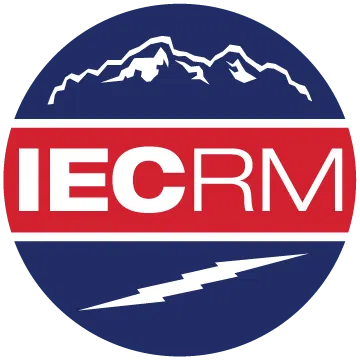Career Path Options for Electricians
Are you an electrician looking to advance your career? Whether you’re a new grad or have been in the industry for years, it’s never too late to explore your career path options.
Electricians invest time, money, and resources into achieving their certification and training. Earning your degree or certificate often creates additional employment opportunities that were not previously available before.
With so many career paths available, deciding which is best for you can be daunting. But don’t worry; this article will discuss all the options for electricians wanting to further their careers. From apprenticeships and internships, to specialized certifications, we will cover it all so that you can make an informed decision about your best career path.
Student and Apprentice Electrician
Student electricians are given an opportunity to learn the trade through a combination of formal education and on-the-job experience. IEC Rocky Mountain offers two career paths for aspiring electricians. The first is an apprenticeship program, which is the largest IEC electrical training program in the country. Apprentices learn from experienced journeyman electricians while working for one of our member contractors. After completing the apprenticeship, they can take the exam to become licensed electricians in Colorado.
The second path is to attend a continuing education program that offers licensing renewal programs, safety, management, and more. Students attending such schools gather both classroom knowledge and hands-on experiences that prepare them for a career as independent contractors. They also have access to IEC’s network of industry partners and resources. Completing this option can help them advance their careers and grow their businesses as licensed electricians.
Journeyman Commercial vs. Residential Electrician
A journeyman commercial electrician is a licensed electrician who typically works on electrical systems in businesses and other commercial buildings. They are knowledgeable about complex electrical codes and can install, maintain, repair, and test these systems as needed.
A journeyman residential electrician is a licensed electrician who typically works on electrical systems in homes and other residential buildings. They know most home electrical codes and can install, repair, maintain, and test these systems as needed.
Master Electrician
A master electrician is an experienced electrician who has achieved a certain level of proficiency, knowledge, and skill. The career options for master electricians may include working in construction to install wiring, performing maintenance and installations in industrial settings, working in businesses such as shopping malls or hotels, or operating their own business. Master electricians must know current regulations and laws relating to their profession. They also require the ability to solve problems efficiently when encountering technical difficulties or malfunctions. Newer technologies can also be quickly assimilated so adjustments to job requirements can be made quickly and accurately.
Electrical Contractor
An electrical contractor is someone who specializes in the wiring and repair of electrical systems. The career path options within this field involve skill development and specialization. Many electrical contractors start by doing pre-apprentice work, including residential and commercial installations, repairs, or renovations. As they gain more experience, they may specialize in particular types of installation, such as industrial, commercial, or government projects. Electrical contractors may also choose to pursue a certification program that involves continuous learning about industry standards and practices. With the right training, an electrical contractor can advance to become a project manager or enter technical services roles such as quality assurance or safety management.
Outside Lineman
Outside linemen are responsible for constructing, maintaining, and repairing power lines. Depending on the employer, a few different paths may be available to those interested in becoming linemen. The most common path is to receive an apprenticeship through their employer or union. Apprenticeships provide newcomers with technical and safety instruction while working in the field with experienced linemen. After completing the apprenticeship program and receiving certification from the state, new linemen typically acquire job titles such as linemate and journeyman-level lineman. As experience increases, outside linemen may move up to more established roles, such as master lineman or senior lineworker. With additional experience and training, some linemen may even specialize in testing equipment and becoming transmission linemen for high-voltage power lines, relying on specialized tools to maintain these complex systems.
Other Careers for Electricians
Other related careers that electricians may consider are alarm and security technicians, lighting technicians, telecommunication technicians, residential wiring specialists, and industrial control systems specialists. Some electricians also become electrical installation inspectors or electrical engineering technicians. Additionally, some may choose to specialize in electrical repair work or alternative energy systems such as solar power or wind turbines.
Turn to IEC Rocky Mountain To Jump Start Or Advance Your Electrician Career
If you’re considering a career in the electrical industry, look no further than IEC Rocky Mountain.
We provide comprehensive programs to jump-start your electrical career, or help you advance in the field. Our programs cover classroom and hands-on settings to ensure you’re prepared for work after completing each program. Plus, you will receive individualized attention from experienced instructors, giving you the knowledge and confidence needed to excel in any job.
With our commitment to helping aspiring electricians reach their fullest potential, we guarantee that if you join us, your skills and opportunities will increase exponentially! Check out our full range of programs today and take the first step towards launching or advancing your electrician career with IEC Rocky Mountain!
saravutpics/Shutterstock
IECRM © 2023

